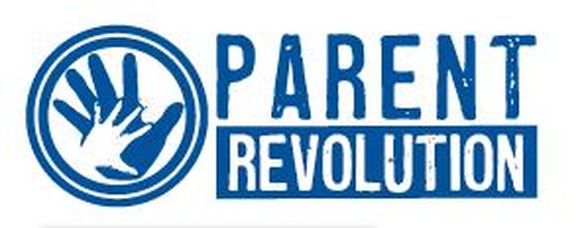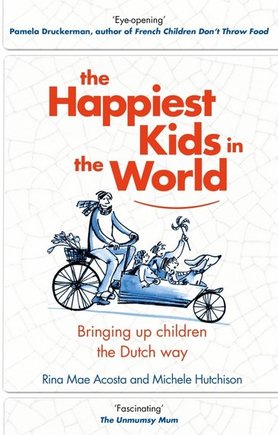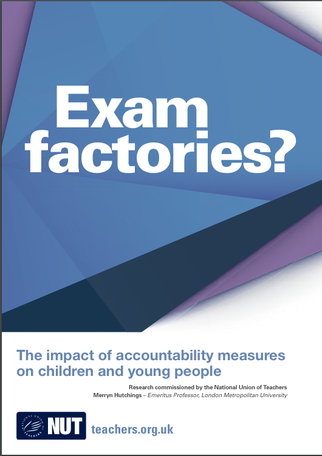|
"The defining feature of modern-day parents in the UK and USA is anxiety and ‘aspirational anguish" Following on from my last post, I have recently been on BBC Breakfast TV talking about the book The Happiest Kids in the World' and I thought it would be interesting to expand on what they say about the pressures on modern parenting and, in particular, how parents in the UK and USA have been made to buy into the very destructive belief that academic achievement is the key to life success. Of course we can't simply transplant the things we like about one culture onto another, but there are things that we can reflect about - especially why we have developed the systems that we have in each country and in what way they are serving the true needs of our communities and populations. I think we have a situation in the UK where the system is no longer serving the wellbeing of children, families or teachers and (as they say at the end of the book) the only way to address this is to initiate a grassroots social revolution. We hope the four-day Festival of Childhood, that we are co-running in the summer, will help with this and we are currently thinking of ways that we can connect all the people that can't get there, but want to be involved (one is to become a member of the Save Childhood Movement). I think the revolution will come from lots of people choosing to get off the achievement and material goods bus - which is what the Millenials are already doing. There is a simpler and happier life available -we just have to decide that we want something better and get together to create it. The book highlights the fact that, in both the UK and USA, parenting expertise is evaluated through the academic accomplishments of children, rather than whether they are growing up to be happy, healthy and caring people - and that this is resulting in highly competitive and judgemental systems that are damaging to both parents and children. As in Scandinavian countries, at the heart of the Dutch culture is a society of home-loving people who place the child firmly at the centre. For Dutch parents success is defined by happiness and wellbeing – that of their children – and of themselves (the importance of adult wellbeing for child wellbeing is something that we highlighted last National Children's Day UK) . "Dutch parents have long realized that the emotional wellbeing of their children is just as important, if not more so, than any external validation of success" In stark comparison, modern culture in the UK and the USA has increasingly defined success through competition and external achievement, with child and family wellbeing secondary. ' In the UK and USA education is seen as the route to success – in the Netherlands it is seen as the route to a child’s wellbeing and their development as an individual (i.e social skills and character) – the focus is on the child and his or her burgeoning independence." As a result UK and USA parents are constantly challenged and unsettled by the combined pressure of their own desire for their children to be happy and do well, with the thoughts and opinions of their neighbours and peer groups, and increasingly strong political messages that children need ‘a head-start' in life that often involves an over-early introduction to formal learning.. The tragedy is that this simply isn't true. The success of Scandinavian systems in international league tables prove that academic achievement is fully possible without hot-housing and without competition. Nor is there any evidence that starting children in formal education early has any beneficial impact on later performance - in fact the opposite is more likely the case. 90% of countries in the world star formal learning at 6/7, because structured play gives children the time to develop all their physical, emotional and social capacities (that are so vital for later learning). "There is no research evidence to support the ‘earlier is better’ view. On the contrary, evidence for the benefits of play-based learning in early childhood shows that those nations where children start formal education later (up to the age of seven) achieve better results on average than those that start formal education earlier. Forcing children to perform tasks that go against their natural developmental instincts may produce short-term results, but often at the cost of long-term motivation and enjoyment. Too Much Too Soon Campaign, 2016 I often wish their was another English word for play that could convey the levels of concentration, creativity and complexity that children develop in the right environments and that is so well understood by schools such as those of Reggio Emilia in Italy. Play in the UK is often portrayed in the media as children standing around a sand tray - which is a travesty to anyone who has seen the real thing. The gifted pedagogue Maria Montessori felt so strongly about this that she called the children's activities 'the work of the child', rather than play, which is actually much more accurate. Many years ago I carried out a piece of research looking at children's perceptions of work and play and it was shocking that within six months of starting reception class amazingly buzzy, curious and active children, that had previously seen work as everything that you did at nursery, suddenly understood the word as something that someone else gave you (that more often than not involved paper and pens) and play as something of much less value that you got to do after you had finished. Children who are 'pressurised to perform, pushed to conform and wired for success' are not allowed to develop at their own pace and quickly learn that their own motivations, choice of activities and judgments of competence don’t count, but what does matters are the teachers choices and judgements, in pursuit of externally imposed tests and desirable outcomes i.e. the demands of what the NUT has termed 'Exam Factories. Instead of schools being dynamic places of learning, they have instead become where your worth is directly related to your academic competence - which is fine if you are academic and a tragedy if you have other skills and capacities (that are actually equally important to healthy, sustainable societies). In my mind it is simply unacceptable for us to label some children as having value and others not, when every one of us has unique interests and abilities that should be nurtured and celebrated. In a recent report the mental health charity Young Minds said that many of the young people that they work with feel constantly judged and completely 'defined by their grades' - so it is not surprising that they are demotivated and depressed. What a weird world we have created when a child with high grades is seen as successful, even if they have been self-harming or on anti-depressants for years. We need to join up the dots between achievement and mental wellbeing. Dutch society has also fought for and achieved an enviable work-life balance. "As the part-time champions of Europe, the Dutch work an average 29 hours a week, dedicate at least one day a week to spending time with their children, and pencil in time for themselves too." - although this does seem to have come as the result of the country needing to cut people's working hours and pay in order to address recession. They don't care any where near as much about material goods though and most have seen this as a beneficial move so that they can spend more time with their families. Parents in the UK are at the other end of the scale, with some of the highest working hours in Europe. The 2017 Modern Families Index reported that: Only one in five families said they have got the right balance between time (to spend with family) and money (earning or having enough income) to see their family thrive (in other words 80% felt they didn't). More than a third say they haven’t got enough time or money. In couple families, many parents both work full time. 48 per cent of couple families in the survey said they both worked full time. 57 per cent of single parents worked full time. Just under half of parents (47 per cent) think that over the last two years it has become financially more difficult to raise a family. It is interesting that the 2011 UNICEF Report on Commercialisation in Europe showed that the UK had the most commercial kids - but only because the parents were compensating for the lack of time that they could spend with them by buying things. Most of the children interviewed said that they would rather spend time together as a family. These are the other things that I have noted from the book:
I have also been thinking about the very important fact that the Dutch political system includes a highly active and rights-based independent Ombudsman for Children, whereas in England we no longer have a Government Minister with responsibility for the rights of all children, the English Children's Commissioner is 'sponsored' by the DfE (!) and we have not implemented child rights impact assessments (CRIA) - despite a UN Committee recommendation to make them statutory
but that is another blog...
10 Comments
1/24/2017 02:44:16 am
Many of us have had the opportunity to live and raise children in other countries, including the Netherlands, and have witnessed/experienced first-hand how life can be very different for children and families - somehow less pressurized, with more celebration of the things that matter... and there seems to be more time for relationships....
Reply
Joanie middleton
1/24/2017 04:25:46 am
A great article . Thank you. Have made an appointment with my mp to discuss the budget cuts hitting our school and resulting impacts. I will add some of these points to my list.
Reply
Anton
1/24/2017 06:06:05 am
Errr... "As in other Scandinavian countries, at the heart of the Dutch culture is a society of home-loving people who place the child firmly at the centre." Last time I checked, we are NOT Scandinavian ;-)
Reply
wendy
1/24/2017 06:23:28 am
thanks Anton - and corrected! :) Wendy
Reply
Elaine Bennett
1/24/2017 08:48:40 am
Completely with you and agree we need to stand together! I started a campaign last year around extending early years approaches to age 7 as in the successful nations you refer to. On the government petition site it received around 25k supporters in 6 months...but not the 100k needed for a debate, so it closed. The same campaign on change.org only has 7.5 k supporters but the stories are powerful from frustrated parents, grandparents, teachers, Headteachers, advisors, researchers, occupational therapists, and psychologists to name a few. I'm passionate about this and would love to stand with you on this. Incidentally I'm a teacher who is passionate about play and I'm now in year one, fighting for my children to have freedom whilst working under a government agenda which dictates the exact opposite. So please get involved and let me know what I can do to help! Individually we are one drop but together we are an ocean!
Reply
1/24/2017 02:41:48 pm
I am supportive of everything you stand for. I am the North East Schools Play Advisor for OPAL. (Outdoor Play and Learning CIC) Children spend 20% of their primary school life in playtime, when schools take a strategic approach to play and get it right...the impact is outstanding. Improved: health and well-being, resilience, physical and emotional literacy, behaviour, life skills, ability to manage risk...the list is endless. EVERY school should become an OPAL school. Feel free to check out the website and share with others. Children's opportunity for free play has disappeared through many reasons, yet schools are in an ideal position to provide an enriched environment where children can explore, take risks, be creative and reclaim some of their childhood back. outdoorplayandlearning.org.uk.
Reply
Jo
1/24/2017 12:10:14 pm
Parents and educators need to come together to say enough is enough. 3 children in every class suffering from mental health problems, our system needs to change. I completely agree that there needs to be a grassroots revolution, we are all responsible for making it happen.
Reply
I brought up 6 children,none of whom have been high achievers but all are flappy,well grounded, bringing up wonderful families of their own. They are caring ,thoughtful,amazing people and one thing I always told them, which they seem to be handing on to their own children ,is that I never cared what they did as long as they were happy and never hurt to anyone else. I also made time in every day for 'winding down' a time to do nothing but relax. Children these days seem unable to do that,they are always rushing around ,or being pushed around, 'socialising' and doing things to " give them a head start", very ,very sad!!
Reply
Amran
1/25/2017 04:31:34 pm
Good article. I totally agree with the fact that U.K. People are suspicious to everyone and not trusted easily !
Reply
Leave a Reply. |
AuthorWendy Ellyatt ArchivesCategories
All
|



 RSS Feed
RSS Feed